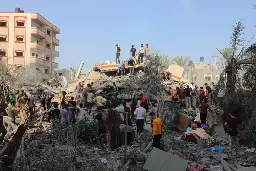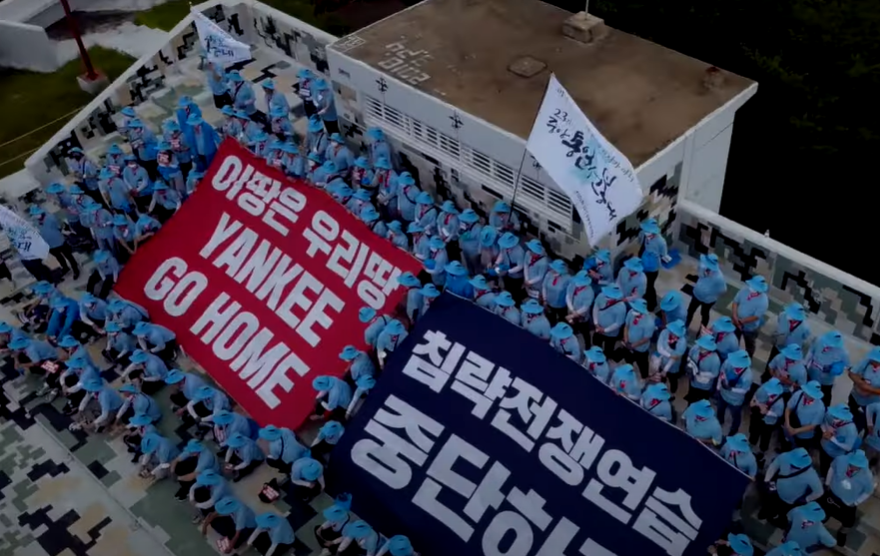
Remember there is c/documentaries! You might find something good there too.
Taken for a Ride - The U.S. History of the Assault on Public Transport in the Last Century - This documentary takes a look at the old public transport system of Los Angeles and follows the step-by-step process by which it was dismantled by General Motors. IMO it's a good one for seeing a concrete example of the actual steps that privatization can take -- GM bought the streetcars after a campaign calling them inefficient/run down etc., then after buying them, let them degrade in quality and service, then replaced them with a supposedly superior bus system. Then they allowed the buses to give poor service, ultimately promoting individual cars over buses and highway expansions as the solution to traffic congestion.
Former CIA Agent John Stockwell Talks about How the CIA Worked in Vietnam and Elsewhere - This interview clip is only 15 minutes long but gives a very concise and specific example of how the CIA manipulates the media by having contacts with reporters and passing them a mixture of true and false stories, basically coming up with bullshit and fake photos that will go viral and spread CIA talking points while the "source" of the information becomes more and more obscured as the story is passed around different news agencies, as well as how the CIA have funded the production of countless books, whose authors were allowed to write whatever they wished as long as they included this or that specific point, and that these authors have gone on to have solid and respected careers in academia.
Cybersocialism: Project Cybersyn & The CIA Coup in Chile - From what I recall it gives a good overview of what happened in Chile. In my opinion, due to Chile's case being so well-documented, it's a case which people without a lot of background knowledge can start to learn about the process of CIA coups from and how it relates to protecting the interests of the bourgeoisie. A viewer of this documentary can then start applying that knowledge to many other cases where a similar pattern comes up (country tries to nationalize industries/resources which are in foreign imperialist hands => economic loan denial/asset freezes/sanctions are implemented by the imperialists & opposition groups and terrorists in the country are funded & coups are orchestrated by the imperialist power.)
The Human Face of Russia - Simply, lots of footage of everyday life in 1980s USSR. As I recall, it was a foreign group going there to film and fact-check about the living standards and learn about various political and social activities of the people. IIRC it was a pretty calm and positive documentary, a good one if you need some time away from more heavy and upsetting topics.
The Weight of Chains - About the breakup of Yugoslavia.
The U.S. School That Trains Dictators & Death Squads - About the School of the Americas.
Gaza Fights For Freedom - About the Great March of Return.
The Lobby - Four-part undercover investigation into Israel's covert influence campaign in the United States.
Man I hate this dude
The history of the Middle East since 1948 shows Israel constantly striving for peace, only to be rebuffed time and again by the Arabs.
-- Antony J. Blinken, "Lebanon and the Facts", 1982
Israel is not, has never been, nor will ever be the irreproachable, perfectly moral state some of its supporters would like to see. Israelis are, after all, only human. Still, one pedestal the Jewish state can stand on--and stand on alone in the Middle East--is that of a democracy. Yes, there are tragic excesses in the occupied territories. True, the invasion of Lebanon claimed many innocent lives. The fact remains, though, that Israelis question themselves and their government openly and honestly. Eventually, as in other democracies, those responsible for wrongdoing are held accountable.
-- Antony J. Blinken, "Israel's Saving Grace", 1982
The summer of 1982 may be remembered in history as the time Israel passed from adolescence to adulthood. The illusions of a child are left behind. But the Jewish state remains special, an oasis in a desert. Its citizens have built a working democracy from scratch in a region that has no others. Israelis must treasure that democracy, protect it with all their will. For if they don't, the growing pains that are Lebanon, Shatila and Sabra, the repression of Arabs and the feud between Ashkenazim and Sephardim could turn into a plague.
-- Antony J. Blinken, "The Danger Within", 1983
I recommend Geopolitical Economy Report.
Edit: Just remembered there is also People's Dispatch, whose articles I sometimes read, but they also have a YouTube channel. I haven't really watched their videos though. Maybe someone else can comment further about it.
Not sure of my favorite but check this out
I just found out about this guy today, and after a cursory look into his work, I thought of your post because it seems he is potentially covering this kind of thing, Prof. Oliver Boyd-Barrett. This page lists the courses he teaches as "The Political Economy of Mass Communication", "The Political Economy of Hollywood and the Press", and "Media Representation and Propaganda in Times of War and Terror". And when I looked him up he has books titled (for example) "Media Imperialism", "Approaches to Media", "Conflict Propaganda in Syria: Narrative Battles", "Western Mainstream Media and the Ukraine Crisis: A Study in Conflict Propaganda".
Considering that I only just now found out about him, I can't exactly vouch for his work, but he wrote this 2021 article about Ukraine which is how I found him.
Here's a documentary about it that leaves out most of the blood and gore that you could easily find if you looked: Donbass (2016). You will see a bit of people being burned to death in this documentary and some other injuries but not to the extent you could find in other videos of the time.
Here's a scene of the burning of the trade union building in 2014. Russian speakers were protesting regarding the repeal of a law which protected Russian as a minority language (or as the Ukrainian former soldier in the video states, they were "contesting a ban on the Russian language in Ukraine.") The protestors hid in the trade union building when Ukrainian right wing nationalists showed up. Eventually, the Ukrainian nationalists set fire to the building and many of the protesters burned to death, with those who jumped out of the windows getting beaten to death by the Ukrainian nationalists. (See also: "Burnt Alive in Odessa").
If you can stomach seeing bodies blown up in the streets, limbs removed, dead babies, and footage of people dying, there are other documentaries around which show it. It's not hard to find footage like this from 2014 onwards. E.g., Result of a 2014 shelling by Ukrainian military (CW: Numerous dead bodies); More aftermath of a shelling (CW: Extremely graphic, numerous mutilated bodies, and footage of a person dying).
You can make up your own mind about the conflict's particulars as you learn about it, but it's a mistake to ignore events happening before 2022 or treat them as insignificant.
I'd be really interested in reading that
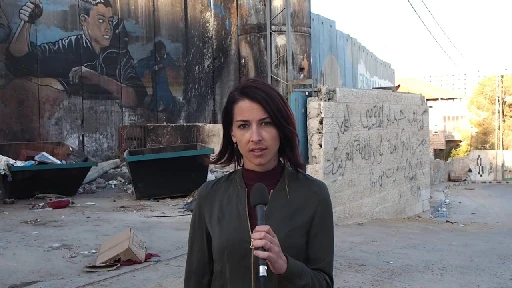
YouTube Video
Click to view this content.

YouTube Video
Click to view this content.
> The Ukraine crisis has laid bare the deep divisions between great powers and cast doubt on the "rule-based order" built by the West. What should a multipolar world look like? What can be done to make sure that the world is not divided between "first-class" and "second-class" countries and peoples? > > For this edition of Leaders Talk, CMG's Wang Guan traveled to Moscow and sat down with Russian President Vladimir Putin ahead of his visit to China to attend the 3rd Belt and Road Forum for International Cooperation. President Putin spoke about Russia-China relations and how they have nurtured and developed in the last two decades, not only on the energy front but also in other areas of mutual interest. He told Wang how the Russian vision of an Eurasian Economic Union aligns with China's Belt and Road Initiative and why President Xi's concept of "building a global community of shared future" is realistic and coherent. President Putin also expressed at length his position on the conflict in Ukraine and drew another parallel with Iran, saying that "the West keeps adding fuel to the fire."
Video channels, playlists, etc.
DPRK Explained - A YouTube channel which explains various things about DPRK.
DefendKorea - "Sharing information from the DPRK and countering the regime-change narrative in favor of peace, reconciliation, and reunification of Korea."
푸옹 Phuong DPRK Daily - "Daily uploads of videos related to the DPRK, news, revolutionary politics, daily life, history, culture, etc. This channel is private and has no official ties to the DPRK."
SAO Documentary - A group of people on various trips to DPRK filming as they go.
DPRK 360 - Various videos of DPRK. It also has a website with blog posts and panoramic photos of DPRK.
Our Daily Life in North Korea - Videos by Jaka Parker, who I believe is a diplomat who previously lived in DPRK with his family for a while. He has other playlists too such as North Korean Store.
Podcasts
Podcast of KEEP delegation discussing former DPRK visits - Several people in the Korean diaspora who travelled to DPRK on multiple trips a few years ago talk about their experiences going there and about the misconceptions they had about DPRK and discussions they had with DPRK people. Currently they are now involved in activism to undo the US travel ban against north Korea so they can continue their delegation trips.
The modern history of Korea with Ju-Hyun Park, Part 1 - Talks about Korea’s modern history before the division. Discusses the Japanese colonial period and independence struggle, and the beginning of US occupation. Part 2 - Discusses Korea post-division, talks about the Korean war and the history of DPRK and south Korea since then.
The Friendship is Strong: Talking About North Korea - Xiangyu (anti-imperialist rapper) discusses going to DPRK and also talks about working for Young Pioneer Tours.
Blowback Podcast season 3 covers Korean war history, it's very worth learning about Korean history as a whole to really understand DPRK.
Articles, blogs, photos
Young Pioneer Tours - This website has several articles about DPRK, usually with photos too, but they're not really listed anywhere that I know of on the site. But if you use a search engine and include the site name you can probably find articles by them on various topics. Examples of some articles: Sariwon Folklore Village, Golden Triangle Bank, Guide to Wonsan, Domestic North Korean Flights, North Korean Traffic Girls, Vegan Food in North Korea, Tae’an Friendship Glass Factory, North Korean Cuisine, Kwangbok Department Store and Supermarket
Explore DPRK - A website with various info. "As an International Friendship Initiative, we strive to promote mutual understanding and cultural exchange between the people of DPRK and the rest of the world. Our website serves as a platform to share knowledge, experiences, and insights about DPRK with the global community."
DPRK 360 - "Since 2013, Aram Pan has been visiting the DPRK (Democratic People’s Republic of Korea) and capturing many aspects of their culture and everyday life."
Avax News, photos tagged "DPRK" - Various pages of photos, when you click "details" you can see multiple photos per post. You can of course try other search terms too.
Korean-language articles (sorry that I don't know an English version of these, but machine translation can help give the main points if you are okay with that):
“Understanding North Korea” - Article series by Tongil Times, especially their 북현대사 (“North Modern History”) series is informative.
“North Korea through the constitution” - Series by Sovereignty Research Institute.
Books
Modern Korea: The Socialist North, Revolutionary Perspectives in the South, and Unification - Book by DPRK author about the revolution and socialist construction up to 1970
Modern History of Korea - A history book from DPRK
North Korean Journey: The Revolution Against Colonialism - Book by historian from the US who visited DPRK
Sanctions of Empire - A zine by Nodutdol about the sanctions placed on DPRK and other nations. (PDF)
Socialist Education in Korea: Selected Works of Kim Il-Sung (PDF) - "Socialist Education in Korea delves into the history and educational praxis of North Korea in a way that is rarely studied in the US, as this work counters many of the western media narratives against North Korea."
Videos (in English or with English subs)
Hong Kong student delegation to DPRK - Students from Hong Kong hanging out with students from north Korea
North Koreans Talk! New Years Resolutions from North Koreans (2020) - "New Years Eve in North Korea I spent asking North Koreans what their New Year's Resolutions for 2020 are."
May day celebration 2017 - Watch some foreign tour guides hang out with Koreans at a May day celebration event. (More videos from them)
“My Experience at PUST(North Korea)” - A foreign English teacher at a school in DPRK made a documentary about their experience (it was an all male students school at the time but now has male and female students. Here is a student being interviewed)
“I met North Koreans on the Trans-Siberian Railway” - South Korean randomly meets some north Koreans on a trip abroad, turn on subtitles to see their conversation in English
Eid Al-Fitr in North Korea - Video of people in a mosque in DPRK
Pyongyang Centre for the Deaf and Blind - Visit to the center, and here is an article about it.
Night walk through the Ryomyong Street in Pyongyang - "One of the most recognizable newly build apartments in the capital of DPRK."
Video of Pyongyang Public Transport (2019) - Just a video of public transport, as the title says.
Videos (in Korean)
Episode of a south Korean TV show where some people visit north Korea, "Walk Into Pyongyang" - Unfortunately there are not English subtitles, but you could try the auto-translate subs feature on YouTube. But you can see countryside and street scenes and see the tone of interactions between people even if you may not understand Korean. It shows their visit without trying to portray north Korea as scary.
[Docuseries] A north-south Korea joint production about north and south Korean cities, "두 도시 이야기" (Tale of Two Cities) - A post I made with links to episodes of this docuseries. I also summarized an episode here: [Video] "What does Childrens' Day look like in north Korea?"
South Korean family on a road trip meets some North Koreans working in Russia - Just a friendly conversation between north and south Koreans randomly meeting in Russia (the north Koreans spotted the south Koreans pulled over at a gas station, and pulled over to greet them and had a chat, mentioned that they work in Russia but return to DPRK yearly)
Socialist Constitution of the Democratic People's Republic of Korea (2019) - DPRK's constitution on Wikisource
DPRK Socio-Economic, Demographic and Health Survey 2014. - Survey co-authored by the United Nations Population Fund and the DPRK’s Central Bureau of Statistics (Related: UNFPA summary of DPRK census population data from 2008).
North Korea’s Surprisingly Robust Healthcare System - Article in Global Asia
ProleWiki page on DPRK - ProleWiki page giving info on DPRK
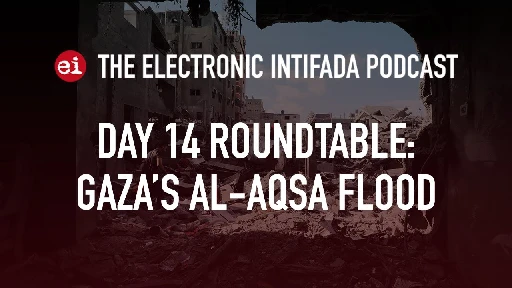
YouTube Video
Click to view this content.
I am also learning details about this so I will just share what I've been looking at. Some of these I haven't fully read yet, so keep in mind I am just showing you the same things I am learning from in the moment.
How Palestine Became Colonized - Video/documentary overview by Empire Files
Palestine, Israel, and the U.S. Empire - Audiobook released by Liberation School, looks like episodes 3-9 probably deal with what you're asking; I haven't listened to it yet
Palestine 101 - Series of history articles by Decolonize Palestine
Historical details/quotes from "Palestine 101"
The [Ottoman] empire would eventually collapse after its defeat in the first World War [...] It was during the final few decades of this dramatic collapse that a certain Austro-Hungarian thinker, Theodor Herzl, was planting the seeds of a new political movement that would change Palestinian history forever.
Convened in the Swiss city of Basel in 1897, the first Zionist congress included over 200 delegates from all over Europe. [...] While there were other Zionist and proto-Zionist movements preceding this which had settled in Palestine, such as Hibbat Zion, the Zionist congress was the first to organize and marshal the colonization efforts in a centralized and effective way.
In the wake of its defeat in WW1, the Ottoman empire was dissolved and its regions carved up and divided among various European colonial powers. In the Levant, Palestine and Jordan fell under the mandate of the British, while Syria and Lebanon to that of the French. The British entered Jerusalem in 1917, and Palestine officially became a mandate in 1922.
The mandate of Palestine provided a golden opportunity for the Zionist movement to achieve its aims. The British were far more responsive to Zionist goals than the Ottomans were, and had earlier produced the Balfour Declaration promising the establishment of a “national home for the Jewish people” in Palestine [...] The British had no genuine sympathy for the plight of the historically oppressed Jewish people; Rather, they saw in the Zionist movement a mechanism through which British interests in the Levant and Suez could be realized.
Emboldened by the Balfour Declaration and supportive British governors, the Zionist movement ramped up its colonization efforts and established a provisional proto-state within a state in Palestine, called the Yishuv. While the Yishuv’s relationship with the British had its ups and downs, the British provided the Zionists with explicit as well as tacit sponsorship which would allow them to thrive. Meanwhile, they would harshly repress any Palestinian movement or organization while turning a blind eye to Zionist expansion, which by the end of the mandate enabled the conquest and mass destruction of hundreds of Palestinian villages and neighborhoods.
Deconstructing and debunking Zionism - Another article; I haven't read it all yet, I just skipped to the section "What are the origins of Zionism?"
Historical details/quotes from "Deconstructing and debunking Zionism"
Herzl’s WZO was created in 1897, and identified Palestine as the site of the future Jewish state. With its support, Zionist settlers began to migrate to Palestine. The WZO attempted to gain support for their project from the Ottoman Empire, but their efforts were in vain [...] With the outbreak of WWI, [...] Zionists found official support for their project from the British Empire. The British, then fighting the Ottomans, sought to colonize whatever territories they could seize from the evidently decaying empire.
In 1917, near the close of the war, the British issued the Balfour Declaration. Supporting the establishment of a Jewish homeland in Palestine was clearly a component of the aim of claiming the formerly Ottoman-held territories, and would have world-historic consequences. Much of the supplementary support behind the Declaration from British gentiles was motivated by Evangelical Protestantism, which viewed it as the fulfillment of Biblical prophecy, and, significantly, an antisemitic desire to solve the so-called “Jewish Question” by encouraging Jewish people to leave Europe. Settler migration into Palestine grew significantly following WWI, and Israel as a settler-colonial nation began to emerge.
Under British rule in Mandatory Palestine, native Palestinians began to be displaced by the settlers, being excluded from the labor force and the purchase of land and property, which Zionist settlers confined to other settlers [...] From 1936 to 1939, Arabs revolted against British rule and Zionist settler-colonialism.
The British then issued the 1939 White Paper, restricting further Jewish immigration into Palestine. After WWII and the devastation of the Holocaust, Europe was convinced that their “Jewish Question” could only be answered by pushing Jewish people out of Europe and into a colonial outpost. And significant sections of the Jewish population were convinced the same
Zionists began to migrate into the settlements in even higher numbers, in defiance of the White Paper. Zionists even began to revolt against British rule, seeking to establish Israel as a state. By 1947, the UN created a plan to partition Palestine into two independent states and a neutral Jerusalem, though it failed to implement it. In response to the passage of the plan, the 1947–1948 civil war broke out between Zionists and Palestinians. By 1948, the state of Israel was established.
As the United Nation’s agency responsible for public health, the World Health Organization (WHO) strongly condemns Israel's repeated orders for the evacuation of 22 hospitals treating more than 2000 inpatients in northern Gaza. The forced evacuation of patients and health workers will further worsen...

>As the United Nation’s agency responsible for public health, the World Health Organization (WHO) strongly condemns Israel's repeated orders for the evacuation of 22 hospitals treating more than 2000 inpatients in northern Gaza. The forced evacuation of patients and health workers will further worsen the current humanitarian and public health catastrophe. > >The lives of many critically ill and fragile patients hang in the balance: those in intensive care or who rely on life support; patients undergoing hemodialysis; newborns in incubators; women with complications of pregnancy, and others all face imminent deterioration of their condition or death if they are forced to move and are cut off from life-saving medical attention while being evacuated. > >Health facilities in northern Gaza continue to receive an influx of injured patients and are struggling to operate beyond maximum capacity. Some patients are being treated in corridors and outdoors in surrounding streets due to a lack of hospital beds. > >Forcing more than 2000 patients to relocate to southern Gaza, where health facilities are already running at maximum capacity and unable to absorb a dramatic rise in the number of patients, could be tantamount to a death sentence. > >Hospital directors and health workers are now facing an agonizing choice: abandon critically ill patients amid a bombing campaign, put their own lives at risk while remaining on site to treat patients, or endanger their patients’ lives while attempting to transport them to facilities that have no capacity to receive them. Overwhelmingly, caregivers have chosen to stay behind, and honor their oaths as health professionals to “do no harm,” rather than risk moving their critically ill patients during evacuations. Health workers should never have to make such impossible choices. > >Additionally, tens of thousands of displaced people in northern Gaza are seeking refuge in open spaces in or around hospitals, treating them as havens from violence as well as to protect the facilities from potential attacks. Their lives, too, are at risk when health facilities are bombed. > >There are verified reports of deaths of health care workers and destruction of health facilities, which denies civilians the basic human right of life-saving health care and is prohibited under International Humanitarian Law. > >WHO calls for Israel to immediately reverse evacuation orders to hospitals in northern Gaza, and calls for the protection of health facilities, health workers, patients, and civilians. WHO also reiterates its calls for the immediate and safe delivery of medical supplies, fuel, clean water, food, and other humanitarian aid into Gaza through the Rafah crossing, where life-saving assistance – including WHO health supplies that arrived earlier today – is currently awaiting entry.
Excerpts:
> Since 7 October 2023, more than 1,900 Palestinians have been killed, including at least 600 children, more than 7,600 injured, and over 423,000 people have been displaced as a result of the Israeli strikes. This fate befell a population which has already experienced five major wars since 2008 in the context of an unlawful blockade imposed by Israel since 2007, which Albanese said has been widely condemned by the international community as collective punishment.
>On 12 October, Israeli forces issued an order for 1.1 million Palestinians in north Gaza to move to the south within 24 hours, amidst ongoing airstrikes. The next day, Israeli forces reportedly began to enter Gaza in order to “clear” the area. Palestinians have no safe zone anywhere in Gaza, with Israel having imposed a “complete siege” on the tiny enclave, with water, food, fuel and electricity unlawfully cut off. Rafah, the only border crossing that remained partially open to the Gaza strip, was closed after damage caused by Israeli airstrikes.
>“There is a grave danger that what we are witnessing may be a repeat of the 1948 Nakba, and the 1967 Naksa, yet on a larger scale. The international community must do everything to stop this from happening again,” the UN expert said. She noted that Israeli public officials have openly advocated for another Nakba, the term for the events of 1947-1949 when over 750,000 Palestinians were expelled from their homes and lands during the hostilities that led to the establishment of the State of Israel. The Naksa, which led to Israel’s occupation of the West Bank and the Gaza Strip in 1967, displaced 350,000 Palestinians.
Israel exterminating 100 children per day in US-backed genocide.
Excerpts:
> For the last week, Israel has been exterminating an average of 100 Palestinian children per day. On Saturday, a doctor at al-Shifa, the Gaza Strip’s main hospital in Gaza City, told Al Jazeera that every hour dozens of dead and hundreds of injured were being brought in.
> On Friday, Israel bombed convoys of vehicles traveling on one of the two roads that the military identified as “safe routes,” killing at least 40.
> Meanwhile, a humanitarian catastrophe in Gaza is underway as essential supplies have not been allowed into the territory – already under a comprehensive Israeli blockade since 2007 – for more than a week.
> The vast majority of Palestinians in Gaza are already refugees from lands inside what is now called Israel – or 1948 Palestine by most Palestinians and many others.
> The World Health Organization on Saturday reiterated its warning that “evacuation orders by Israel to hospitals in northern Gaza are a death sentence for the sick and injured.”
> Israel cut off internet connectivity in Gaza, and the destruction of two of Gaza’s three cellular towers and inability to charge mobile phone batteries has made it difficult for Palestinian families to contact one another – its own form of psychological torture.
Article embeds many twitter messages sent from people in Gaza about their situation and memorial messages about family members and others, public statements by orgs, as well as photos and links to further information and other news reports.
> Evacuation orders by Israel to hospitals in northern Gaza are a death sentence for the sick and injured > >As the @UN's agency responsible for public health, the World Health Organization (WHO) strongly condemns Israel's repeated orders for the evacuation of 22 hospitals treating more than 2000 inpatients in northern Gaza. The forced evacuation of patients and health workers will further worsen the current humanitarian and public health catastrophe. > >The lives of many critically ill and fragile patients hang in the balance: those in intensive care or who rely on life support; patients undergoing hemodialysis; newborns in incubators; women with complications of pregnancy, and others all face imminent deterioration of their condition or death if they are forced to move and are cut off from life-saving medical attention while being evacuated. > > Health facilities in northern Gaza continue to receive an influx of injured patients and are struggling to operate beyond maximum capacity. Some patients are being treated in corridors and outdoors in surrounding streets due to a lack of hospital beds. > > Forcing more than 2000 patients to relocate to southern Gaza, where health facilities are already running at maximum capacity and unable to absorb a dramatic rise in the number patients, could be tantamount to a death sentence. > > Hospital directors and health workers are now facing an agonizing choice: abandon critically ill patients amid a bombing campaign, put their own lives at risk while remaining on site to treat patients, or endanger their patients’ lives while attempting to transport them to facilities that have no capacity to receive them. > > Overwhelmingly, caregivers have chosen to stay behind and honor their oaths as health professionals to “do no harm,” rather than risk moving their critically ill patients during evacuations. Health workers should never have to make such impossible choices. > > Additionally, tens of thousands of displaced people in northern Gaza are seeking refuge in open spaces in or around hospitals, treating them as havens from violence as well as to protect the facilities from potential attacks. Their lives, too, are at risk when health facilities are bombed. > > There are verified reports of deaths of health care workers and destruction of health facilities, which denies civilians the basic human right of life-saving health care and is prohibited under International Humanitarian Law. > > WHO calls for Israel to immediately reverse evacuation orders to hospitals in northern Gaza, and calls for the protection of health facilities, health workers, patients, and civilians. > > WHO also reiterates its calls for the immediate and safe delivery of medical supplies, fuel, clean water, food, and other humanitarian aid into Gaza through the Rafah crossing, where life-saving assistance, including WHO health supplies that arrived earlier today, is currently awaiting entry.
cross-posted from: https://lemmygrad.ml/post/2372708
> >AMMAN/EAST JERUSALEM, > > > >“As Gaza remains under heavy bombardment with Israel tightening its grip over the overpopulated Strip, it is left to the UN and humanitarians to protect civilians. > > > >“The call from Israeli Forces to move more than 1 million civilians living in northern Gaza within 24 hours is horrendous. This will only lead to unprecedented levels of misery and further push people in Gaza into the abyss. > > > >“Since 7 October, over 423,000 people have already been displaced. Of them, more than 270,000 have taken refuge in UNRWA shelters, where basic food, medicine and support is provided to retain dignity and a glimmer of hope. > > > >“The scale and speed of the unfolding humanitarian crisis is bone-chilling. Gaza is fast becoming a hell hole and is on the brink of collapse. > > > >“There is no exception, all parties must uphold the laws of war; humanitarian assistance must be provided at all times to civilians. > > > >“In Gaza, more than 2 million people are caught up in this conflict. UNRWA is struggling to fulfil its mandate. > > > >“I urge all parties and those with influence over them to put an end to this tragedy and provide immediate and unconditional humanitarian access and protection to the civilians, among them far too many women and children. > > > >“The time for humanity to prevail is now.” > > > >ENDs -
>AMMAN/EAST JERUSALEM, > >“As Gaza remains under heavy bombardment with Israel tightening its grip over the overpopulated Strip, it is left to the UN and humanitarians to protect civilians. > >“The call from Israeli Forces to move more than 1 million civilians living in northern Gaza within 24 hours is horrendous. This will only lead to unprecedented levels of misery and further push people in Gaza into the abyss. > >“Since 7 October, over 423,000 people have already been displaced. Of them, more than 270,000 have taken refuge in UNRWA shelters, where basic food, medicine and support is provided to retain dignity and a glimmer of hope. > >“The scale and speed of the unfolding humanitarian crisis is bone-chilling. Gaza is fast becoming a hell hole and is on the brink of collapse. > >“There is no exception, all parties must uphold the laws of war; humanitarian assistance must be provided at all times to civilians. > >“In Gaza, more than 2 million people are caught up in this conflict. UNRWA is struggling to fulfil its mandate. > >“I urge all parties and those with influence over them to put an end to this tragedy and provide immediate and unconditional humanitarian access and protection to the civilians, among them far too many women and children. > >“The time for humanity to prevail is now.” > >ENDs -
> The New York Times reported on Thursday that the US and Qatari governments reached an agreement not to release the US$6 billion South Korea sent to Iran as payment for oil. Sanctions placed by the Donald Trump administration against Iran in 2019 initially prevented South Korea from transferring this fund. On Sept. 18, after five US prisoners were released, the US allowed the money to be transferred to a Qatari bank on the condition that it could only be used for humanitarian purposes such as purchasing food and medical supplies.
> But less than a month later, the brakes were put on the fund’s withdrawal in response to Palestinian militant group Hamas’ attack on Israel. Wally Adeyemo, the US deputy secretary of the Treasury, shared with Democratic lawmakers that these assets will not be available for withdrawal for the foreseeable future. During his visit to Israel, US State Secretary Antony Blinken also revealed that Iran hadn’t spent any of the US$6 billion.
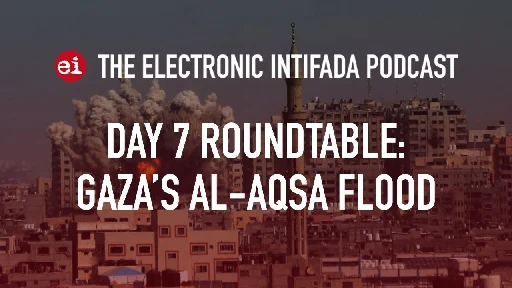
YouTube Video
Click to view this content.
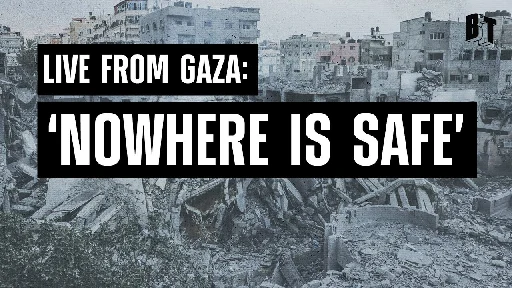
YouTube Video
Click to view this content.
Soldiers join in the violence, rights group says.

All this week I keep thinking about/looking up Haitian revolution images too...
I suggest studying some Korean history and reading the works of DPRK's leaders and other DPRK authors directly and over time you can form your own evaluation of what they believe and why they have implemented particular policies at various times. I don't have time to write more on it at the moment but you can find some of Kim Jong Il's views on Marxism, Marxism-Leninism, socialist construction, and Juche here.
The "patsoc" ideas which promote patriotism in the imperial core and reject decolonization are much different from the socialist patriotism which is anti-imperialist and decolonial. DPRK does uphold socialist patriotism, which is regarded as part of its internationalist duty of completing the Korean revolution by focusing the majority of its attention on Korea, to make sure their revolution is successfully carried out, and which is specifically against promoting national chauvinism, and rejects racism.
DPRK's emphasis on looking inward for solving its problems and on self-reliance come from Korea's specific conditions. Specifically, Korea has been a battleground for world powers for much of its existence and historically had strong ideological currents of subservience to larger powers influencing its politics, which posed obstacles for progressive/revolutionary movements in Korea since feudal times and into the modern era. After DPRK was formed, it also had to deal with the issue of different influential strains of thought among socialist countries, including its powerful neighbors, Russia and China, during the Sino-Soviet split. The opening of China and the fall of the Soviet Union led to further inner debates. DPRK's emphasis on focusing on its own conditions is a necessity for it to avoid dogmatically following other states' lines and thus committing errors in its own revolution, not a blanket rejection of foreign ideas.
I am still learning about Songun, but from what I have read so far, it seems to have its roots in the Cuban missile crisis where US aggressions were ramping up, and finally came to the fore as policy during the Arduous March, when the US was trying to use the economic upheavals after the fall of the Soviet Union, with the US attempting to end DPRK by intentionally starving its people to death. It was determined that in order for Korea to complete its revolution and defend socialism, it would be necessary to heavily prioritize defense due to DPRK being under constant mortal threat from imperialism. Edit: Also, with DPRK's more recent nuclear developments, I believe the policy of Byungjin (parallel development of military and economy) has returned to the fore, though I may be wrong about that. I'd appreciate being corrected if someone knows.
Kim Il Sung on socialist patriotism, preventing chauvinism, and rejecting isolationism
In educating the working people in socialist patriotism, care should be taken to prevent the growth of tendencies to national chauvinism and restorationism. One may be apt to head for chauvinism on the plea of building an independent national economy by one’s own efforts and promoting national pride. If we steer in the direction of chauvinism as Regent Taewongun pursued a policy of national isolation, we will come to reject international exchange and advanced science and technology from other countries and, accordingly, hinder the development of our country. Likewise, it is wrong for us to dislike reading foreign books and feel disinclined to learn foreign languages on the grounds of building an independent national economy and establishing Juche in science. It does not always follow that one is infected with revisionism because one reads foreign technical books and that one becomes pro-Japanese or pro-American because one learns Japanese or English. When learning foreign languages we must not lay stress on any one of them but study Russian, Chinese, English, French and other languages. The point is to learn them for the good of the people and for contributing to the rapid development of the socialist motherland, without engaging in flunkeyism. Besides inspiring the working people with national pride, we should educate them better in the spirit of internationalism. Thus, we will fight resolutely against the imperialists and Right and “Left” opportunists, in unity with the peoples of the socialist countries, and in close unity with many other peoples of the world.
quote about preventing dogmatism in solving problems in the revolution without mechanically copying others
From the work "Modern Korea" by Kim Byong Sik
For countries such as Korea, where the working class has conquered power and established a dictatorship of the proletariat, it is vital to the success of the revolution to work out correct theoretical propositions concerning the transitional period: How to understand the significance and nature of the transitional period, how to set the various tasks of the transitional period according to its different stages, and how to analyze inter-relationships between the transitional period and the dictatorship of the proletariat.
Despite the importance of these questions to the revolution, there has been insufficient clarification and various deviations have been committed, with the result that immeasurable damage has been done to the practical struggles for socialist and communist construction. This urgent problem -- the task of solving correctly, theoretically, the question of the transitional period and the dictatorship of the proletariat- was accomplished by Kim Il Sung, in detail, on the basis of the revolutionary principles of Marxism-Leninism.
His ideas and theory were developed in his work, Questions of the Transitional Period from Capitalism to Socialism and the Dictatorship of the Proletariat. In this work, he said:
As with all other scientific and theoretical questions, questions of the transitional period should be solved on the basis of the Juche idea of our Party. We should never try to solve these questions dogmatically by becoming slaves to the classical propositions on this question, nor should we be influenced by subservient ideas and follow others in the solution these questions.
In the interpretation of classical propositions it is essential to understand the historical circumstances and the premise on which the classical works were based. Only on this basis is possible to understand the content of classical propositions and to grasp their revolutionary meaning. If the historical circumstances are ignored, it will lead inevitably to a one sided and dogmatic interpretation or to a revisionist interpretation that seriously distorts the revolutionary content.
Specifically, if a classical proposition is applied mechanically to a changed situation, without considering the historical circumstances and theoretical premises related to the proposition, not only will a fundamental error be committed in the theoretical solution of the question but a decisive error in practice will also result. Thus, to solve the problems of the transitional period and the dictatorship of the proletariat, it is necessary to base ourselves firmly on the revolutionary propositions of Marxism-Leninism and, at the same time, to uphold the Juche idea of applying them creatively to suit the constantly changing and developing actual conditions of the revolution.
I recommend this essay on ProleWiki, The Cleanest Farce: How "Experts" Distort the DPRK, and the page about Juche which has sections about Juche's relationship to dialectical materialism and to Marxism-Leninism specifically. Tl;dr is that ML is seen as a correct revolutionary idea but that it, being very old by now and being formulated in the world's first successful socialist revolution, it lacks certain concrete details about socialist construction in the present day and also (naturally) has a different context than Korea's revolution. Therefore it is regarded as a basically correct idea for revolutionaries to follow, but that following it dogmatically is an insufficient application of it, and all countries will need to forge their own path to suit their own conditions as they are confronted with the task of socialist construction and defending the revolution in the present conditions. Juche takes the dialectical materialist view of the world, and it is just dealing more with how people can have a certain attitude and point of view to successfully carry out revolution.
Indigenous Peoples' Day 2023 live episode special! TRN Podcast co-host Nick Estes in conversation with Ali Abunimah, founder and Director of The Electronic Intifada, on the unprecedented events in Palestine and what lessons they offer about the nature of decolonization. Follow Ali on Twitter...
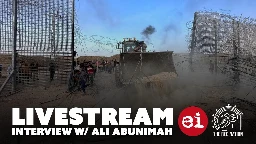
As a former senior economist of the IMF once said:
Today I resigned from the staff of the International Monetary Fund after over twelve years, and after 1000 days of official Fund work in the field, hawking your medicine and your bag of tricks to governments and to peoples in Latin America and the Caribbean and Africa. To me resignation is a priceless liberation, for with it I have taken the first big step to that place where I may hope to wash my hands of what in my mind's eye is the blood of millions of poor and starving peoples. Mr. Camdessus, the blood is so much, you know, it runs in rivers. It dries up too; it cakes all over me; sometimes I feel that there is not enough soap in the whole world to cleanse me from the things that I did do in your name and in the names of your predecessors, and under your official seal.
You know, when all the evidence is in, there are two types of questions that you and me and others like us will have to answer. The first is this: - will the world be content merely to brand our institution as among the most insidious enemies of humankind? Will our fellow men condemn us thus and let the matter rest? Or will the heirs of those whom we have dismembered in our own peculiar Holocaust clamor for another Nuremberg?
(Davison Budhoo's IMF resignation letter. PDF, archive.org)
more quotes
As from today I refuse to accept the Fund-imposed censorship on our activities in the Third World. I have also stopped obeying your directive that reports and memoranda and other printed matter that document these activities be regarded as unexceptionally confidential and "hush-hush".
In guilt and self-realization of my own worthlessness as a human being, what I would like to do most of all is to so propel myself that I can get the man-in-the- street of North and South and East and West and First and Second and Third and Fourth and All Other Worlds to take an interest in what is happening to his single planet, his single habitat, because our institution was allowed to evolve in a particular way in late twentieth- century international society, and allowed to become the supra- national authority that controls the day-to- day lives of hundreds of millions of people everywhere. More specifically, I would like to enlighten public opinion about our role and our operations in our member countries of the Third World.
I can get people to begin to comprehend the universality and the depth of our perversion - I would have achieved something rare and precious for the starving and dispossessed two-thirds of mankind from whose ranks I come, and for whose cause I must now fight.
Our policy package for Trinidad and Tobago-i.e. the conditionality that we are demanding for any Fund program [...] can be shown, even in a half-objective analysis, to be self-defeating and unworkable. That policy package can never serve, under any set of circumstances, the cause of financial balance and economic growth. Rather, what, in effect, we are asking the Government of Trinidad and Tobago to do is to self-destruct itself and unleash unstoppable economic and social chaos.
We manipulated, blatantly and systematically, certain key statistical indices so as to put ourselves in a position where we could make very false pronouncements about economic and financial performance of that country. In doing so, we created a situation whereby the country was repeatedly denied access to international commercial and official sources of financing that otherwise would have been readily available. Our deliberate blocking of an economic lifeline to the country through subterfuge served to accentuate tremendously the internal and external financial imbalances within the economy
As the country continues to resist our Deadliest Medicine that would put it in a position to enter into a formal stand-by arrangement with us, we continue to resort to statistical malpractices and unabashed misinformation so as to bring it to heel. Among several misdeeds, we have influenced the World Bank, apparently against the better judgement of its own mission staff, to come out in support of our trumped-up policies and stances for the country
What we have done and are doing in Trinidad and Tobago is being repeated in scores of countries around the world, particularly in Latin America and the Caribbean and Africa. Sometimes we operate with greater restraint, sometimes with less, but the process and the result are always the same: a standard, pompous recital of doctrinaire Fund "advice" given uncompromisingly and often contemptuously and in utter disregard to local conditions and concerns and susceptibilities. It is the norm now rather than the exception, that when our "one-for-all and all-for-one" Fund cap doesn't fit the head for which it is intended, we cut and shave and mangle the head so as to give the semblance of a fit. Maybe we bust up the head too much in Trinidad and Tobago, but have no illusions that the way we operate through- out the world - the narrow and irrelevant epistemology underlying our work, the airs and affectations and blases and illusions of superiority of our staff vis-Á-vis government officials and politicians in the developing world, our outrageous salaries and perks and diplomatic immunities and multiple "entitlements", the ill-gotten, inadvertent power that we revel in wielding over prostrate governments and peoples- can only serve to accentuate world tensions, expand even further the already bulging ranks of the poverty-striken and destitute of the South, and stunt, worldwide, the human soul, and the human capacity for caring and upholding norms of justice and fairplay.
As far as I understand, it's subsidies in this case. US will subsidize elements of the Korean corporation's production as long as they build factories in the US but the benefits will be taken away if they have over the specified amount of production going on in China. And the amount they specify for that basically amounts to not allowing them to make any more factories in China and not letting their existing ones be highly productive.
Excerpts:
> Based on this development, Samsung Electronics and SK Hynix will inevitably have to modify their strategy despite having invested trillions of won to build factories in China
> The US government ultimately did not accept the requests of Seoul and South Korean corporations to ease the guardrails for the CHIPS and Science Act, which have the potential to worsen the competitive edge of South Korean chip factories operating in China, restricting production capacity expansion in China in the next 10 years to 5% as originally outlined.
> The US Department of Commerce’s finalized guardrails for the CHIPS and Science Act included measures that would allow the US to “claw back” incentives granted if recipients expand production capacity above approved standards in “foreign countries of concern,” including China.
> It appears likely that these investment restrictions will prolong uncertainty about the competitiveness of Samsung and SK Hynix factories in China.
In America there are signs posted all over residential zones reminding citizens that they are being spied on by their neighbors who will immediately report all "suspicious persons and activities" to the authorities 😱 Some signs even mention the people have been "trained" to report/spy on each other's family members 😢


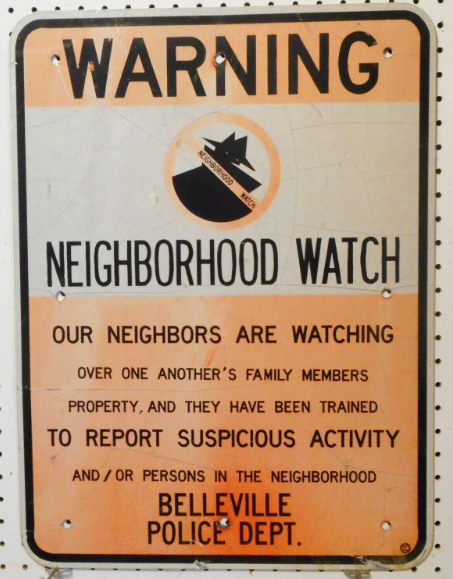
“We have many interesting projects,” Putin promised, naming as one example the plan to develop Russian railroad connectivity through North Korea. (Source)
Really interested to see if this is pursued.
This is an old article (2018) but it outlines the kinds of projects that have been discussed before concerning Russia-DPRK-ROK:
One such project could be a railway that will be able deliver goods from Russia to South Korea through North Korea. "Once the Trans-Korean Main Line is built, it may be connected to the Trans-Siberian Railway. In this case, it will be possible to deliver goods from South Korea to Europe, which would be economically beneficial not only to South and North Korea but to Russia as well," Moon Jae-in said in an interview with Russian media ahead of his state visit to Moscow.
A gas pipeline coming from Russia to North Korea to be extended to the South is another possibility, he said. "We can also build a gas pipeline via North Korea, so that not only South Korea will receive Russian gas but we will also be able to deliver it to Japan," the South Korean president said.
The project to unite the Korean Peninsula with a gas pipeline has been discussed for a long time, but official talks started in 2011. The negotiations were frozen after relations between Seoul and Pyongyang deteriorated. Last week, Russian energy major Gazprom announced it resumed talks with Seoul over the construction of a gas pipeline connecting Russia with North and South Korea.
The countries could also connect their electricity grids, Moon Jae-in said. "We can also establish a powerline that would allow us to receive electricity from Russia. It could also be delivered not only to South and North Korea but also to Japan.”
Unfortunately I don't know enough about that to speak on it
Part 1: NATO failed in Ukraine against Russia. Now it's targeting China (Youtube/Invidious)
Part 2: Anti-China hawks' drive to expand NATO into Asia may destroy Western military alliance (Youtube/Invidious)
Personally I found some of Escobar's comments in part 2, around @8:03 regarding DPRK to be pretty interesting. He talks about how although the Western media focuses on the military aspect of relations between Russia and DPRK, that recently, signs are showing of Russia's intention to help with getting DPRK re-integrated into international trade and especially his comments in regard to building a trans-Korean railway to link with the trans-Siberian railway and how this topic is likely to come up on the next Eastern Economic forum in September. (This railway concept isn't a new one, but I found his comments about recent events interesting) as well as potential inclusion in other trade deals/organizations, etc.
click to see a transcript of his comment on this
[Note: transcript is auto-generated and I didn't clean it up completely]
Escobar: I'd like to focus on something that happened these past few days, which is enormous, and I would say for most of the planet, quite unforeseen: which is Russia bringing back North Korea, the DPRK, to the rank of a very important Global south power with enormous reach...
So, we have Ministry of Defense Sergei shoigu, received like Mick Jagger in Pyongyang. he got a true rock star welcome. the whole thing, including a private audience with Kim Jong-un. and obviously the whole leadership of the dprk.
What leaked, of course, was the possibility of many military agreements and increasing their military collaboration what did not leak is the best part of them all because it's the geo-economic part.
What do the Russians really want to do with the Pyongyang? they want to integrate Pyongyang with South Korea, with Seoul, and of course this will mean Russia developing a sort of go-between diplomacy between both--and they have the possibility to do both because they are also respected in Seoul.
And something that has already been discussed at the Eastern economic Forum in Vladivostok--these discussions they started at least three or four years ago in Vladivostok--and what they're all about, basically, is to build a trans-Korean Railway which is going to connect with the Trans-Siberian and connect both koreas to the Russian Far East and then all the way across Eurasia.
So, imagine that you are a Samsung businessman in Seoul you look at that and said "wow, I'm gonna have--I don't need to to use a cargo tankers anymore, I can have direct access to the enormous developing Market in the Russian Far East, not to mention the whole of Eurasia via Russia just by building a Railway." very very simple.
Which, sooner or later, with--and I would say, with Chinese input, could become a high speed rail. Considering that the Chinese are already investing in a High-Speed Rail in Russia, and considering that if there is a a duplication of the Trans-Siberian into a Trans-Siberian high-speed rail is going to be built by the Chinese, this is a trans Korean Railway could also be built with Chinese input, technical input as well. And financed via a Chinese a Silk Road fund the brics Development Bank, Russian Banks--and it could be a a reorganization of Finance, East Eurasia style.
So, they were discussing that of course. and this is going to be rediscussed and they're going to get deeper into it at the next Eastern economic Forum in Vladivostok in early September. so, it's a around the corner. literally. so so the fact that this is happening now, it's very, very important because this is a sort of uh, preamble to what they're gonna get into at the next Eastern economic Forum.
So, everybody is happy with this Arrangement; North Korea because they are brought back to the Forefront of trade in the parts of, Eurasia, the possibility of having some sort of geo-economic deal between North Korea and South Korea, Russia developing the Far East and integrating the Far East with the koreas, and China, of course, because this also integrates this part of Eurasia this North in Eurasia uh, framework. and it's part of brics. it's part of the Shanghai Corporation organization.
And this opens, I would say, this leaves us with the possibility of North Korea, sooner or later, getting integrated into the Eurasia economic Union. and that's fantastic. because this I see that happening in uh at least two stages. the first stage, the EAEU strikes a free trade agreement with North Korea, just like the ones they have with Cuba, or with Vietnam in Southeast Asia. and they are also working with Indonesia, to have an EAEU free trade deal with Indonesia.
They could also do the same thing with North Korea and--fantastic--this bypasses U.S sanctions! because it's going to be EAEU basically, uh Russia is 80% of the Firepower of the EAEU. they can devise a settlement mechanism involving in North Korea that bypasses the US dollar completely. you have expansion of EaEu to North East Asia which is very important.
The Chinese are going to love it as well because they can also, um, even if they are not part of the EAEU, don't forget that Putin and Xi have already said,and the directives are already there, the Belt and Road initiative--BRI--and EAEU they have to converge. and this would be a perfect example of convergence between BRI and EAEU. so that's why the way I see this visit by shoigu as Mick Jagger, it's extrapolates it everywhere, geoconomically and geopolitically, and it's no wonder that it was not even mentioned, I would say, or barely mentioned in Western mainstream media.
---
Anyway, just sharing these. They cover a lot of topics in this discussion.

YouTube Video
Click to view this content.
From "Alternative Views" TV program
"Americans go to Nicaragua, they're welcome there, they go by the dozens of thousands to witness, to document these things. Eight thousand people killed, all civilians, killed. Mostly women and children. And this is a deliberate technique of the CIA, it's part of crippling a country, it's part of forcing it, traumatizing it, paralyzing it, until it grinds to a halt, until you've broken it completely, and then, as Reagan would dream, you can put in the marines eventually, and people will welcome the marines as they hand out care packages from their trucks because they're so crushed and so desperate that anything would make them feel better."
"They're trying to create conditions in Nicaragua, they have in northern Nicaragua for five years, where the farmer can't get his produce to market, where children can't go to school, where the government administration of the country grinds to a halt, where hospitals are treating wounded people instead of sick people where international capital is is scared off, as john was saying so very very well. the techniques are raw terrorism."
"The CIA today is running 50 covert actions, this came out in one of the oversight committee's debates, destabilizing almost one-third of the countries in the world today. That cannot make this world a calmer more peaceful safer place for anybody to live in it. Nicaragua's only the most famous one."
"The Sandinistas searched for an independent position in foreign relations and pluralism at home. They sought to break their economic dependency on north American markets and US transnational corporations, despite tremendous obstacles such goals have been achieved though to varying degrees. Campaigns in health and literacy carried out with enthusiastic popular support have won international praise. A unique land reform plan was developed and implemented winning support even from the US agency for international development in 1981, and elections were held last November. But the heavy weight of external aggression has taken its toll. the country is now focusing much of its energies on defense in order to defeat the Contras."
"By 1984 the united states congress had begun to grow weary of supporting the Contras. Thousands of civilians had been killed and the contras were going nowhere there were the reports of the CIA mining of Nicaragua's harbors and a CIA printed manual containing instructions in assassination and terrorism was revealed. Congressional leaders began to feel that the CIA had gone astray and aid to the Contras was temporarily halted by Congress. However, Contra aid continued to flow from unofficial sources."
"What we've been able to tell there's three routes--first of all, during the time when the countries were getting the official government pay from the united states, it was vastly in excess of the amount of money that had been appropriated--but the three routes, that have since been supposedly shut off, appear to be: One, selling American military equipment at fire sale prices, at unbelievably cheap prices to shell companies that turn out to be companies that are owned by the CIA, which in turn then give it to the Congress. That's one way. The second way is laundering the money through El Salvador, Honduras, and Israel, as we reported in the New York Times about on January 12th. The third way is leaving enormous amounts of military supplies around in Honduras after these incredible war games and then everybody goes out for a beer and the Contras come in and load up a few trucks and drive away and nobody saw it happen."
